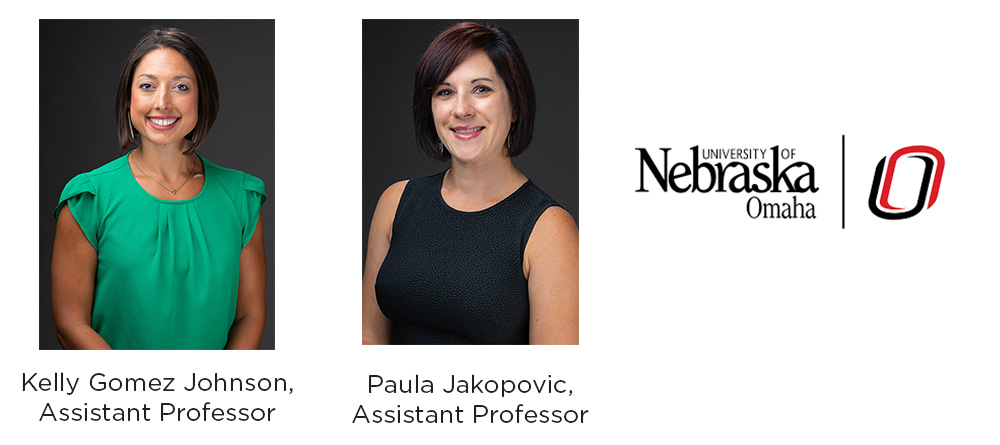
This paper from UNO's Kelly Gomez Johnson and her Robert Noyce Scholarship program colleagues examines learning assistants in active learning college mathematics classrooms to see where and how they find value in their experience. Gomez Johnson and Paula Jakopovic are past NebraskaMATH participants at the University of Nebraska-Lincoln.
The UNO NebraskaNoyce project is funded by a Track 1 NSF Noyce grant, and provides internships and scholarships for undergraduate students who are interested in STEM (internships) and potentially pursuing secondary mathematics education as a program of study (scholarships). The UNO interns and scholars take part in a range of activities to support STEM and mathematics education, both at UNO and within the broader Omaha community. One of the roles they take on is that of learning assistants in some of the undergraduate mathematics and mathematics education courses.
"In these roles, our students are given opportunities to experience math from the teacher's perspective, which provide unique, wider professional development opportunities that go beyond the traditional practicum experience," Jakopovic said. "Our team has been examining the potential impact that these learning assistantships can have on the development of our future mathematics teachers, in terms of learning about mathematics, about teaching, and about how students learn."
A Phase II grant formalized UNO's partnership with Omaha Metropolitan Community College (MCC) to create a pipeline of interns from the 2-year setting to UNO. Interns at MCC, not participants in this study, are students who have not solidified their decision to become STEM teachers, but receive mentoring, serve as LAs and tutors, and are involved in UNO NoyceMath programming, Gomez Johnson said.
"The Phase II Omaha NoyceMath Partnership builds on the success of the Phase I grant where all 16 dual-degree graduates in mathematics and secondary education continue to serve in the high-need school district where they were originally employed," Gomez Johnson added. "Ensuring all Scholars and Interns have at least one LA experience before they graduate was a key implication from our Phase I grant based on participant data and we have been energized with the opportunity to expand the professional learning opportunity at both UNO and MCC."
Gomez Johnson, Jakopovic, and their team have been using and adapted version of the value framework developed by Wenger et al. (2011) to look at the value that our students identify by participating in their learning assistantships. This article offers insights into the first phase of their work, highlighting the immediate "in the moment" value students find in working with adult learners, as well as the potential value they see that can inform their future teaching practice.
Transformative Dialogues: Teaching and Learning Journal
Summer 2021, Volume 14, Issue 2
Authors:
Kelly Gomez Johnson, University of Nebraska at Omaha
Paula Jakopovic, University of Nebraska at Omaha
Janice Rech, University of Nebraska at Omaha
Angie Hodge-Zickerman, Northern Arizona University
Abstract:
Increasing the participation and achievement of students in Science, Technology, Engineering, and Mathematics (STEM) from early grades to college coursework continues to be at the forefront of educational transformations and research. Faculty members at Institutions of Higher Education (IHE) plan, implement, and investigate how program structures might aid in the development, retention, and overall success of undergraduate students in STEM. Active learning classrooms, especially in mathematics, are one way IHE are reforming student learning experiences, and these environments also provide a unique opportunity to engage undergraduate learning assistants with faculty to support near-peer students and deepen their own learning. Identifying aspects of undergraduate learning assistants’ experiences that they find most valuable and interrogating how those are linked to their development can help IHE faculty better understand and plan for how to support undergraduate students in particular fields, such as STEM and STEM teaching. In particular, this paper examines scholarship participants serving as learning assistants in active learning college mathematics classrooms to see where and how they find value in their experience. Implications of this research can inform faculty and university programs on how they might prioritize and transform learning opportunities for students to impact their current and future development in STEM and beyond.
Read full research article:
https://journals.kpu.ca/index.php/td/article/view/1487/1033